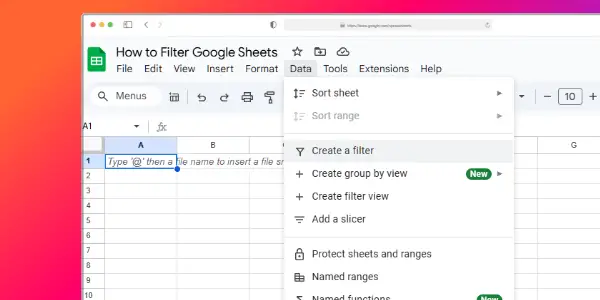Imagine being the conductor of an orchestra, expertly directing each musician to create a harmonious performance. It's a lot like being a program manager, where you're tasked with bringing together diverse stakeholders, resources, and timelines to deliver successful projects.
But, let's be honest – being a program manager can be a tough job. To be successful, you need to be a skilled leader, strategic thinker, and technical expert all rolled into one.
That's a tall order, especially when you're dealing with competing stakeholder interests, mitigating risks, and driving innovation all at the same time.
So, what are the essential skills you need to excel as a program manager, and how do you develop them to achieve success?
Essential Skills for Program Managers
To be a successful program manager, you need to have a mix of essential skills that set you up for success. These skills include strategic planning and vision, leadership and stakeholder management, organizational and operational efficiency, and more.
As a program manager, your main job is to oversee projects and make sure they align with the organization's goals. To do this effectively, you need management skills that enable you to plan, coordinate, and execute projects seamlessly.
So, what does it take to be a great program manager? For starters, stakeholder management is critical. You'll be working with various stakeholders, including team members, customers, and vendors. You need to be able to communicate effectively, build strong relationships, and manage expectations.
Additionally, you should have technical proficiency and industry knowledge to make informed decisions and stay ahead of the curve. By mastering these essential skills, you'll be well-equipped to handle the demands of program management and drive success in your organization.
Leadership and Stakeholder Management
When you're overseeing projects and aligning them with organizational goals, you quickly realize that your ability to lead and manage stakeholders is what sets you apart as a successful program manager.
Effective leadership skills are vital in driving project success, and stakeholder management is a key part of that.
You need to be able to identify, analyze, and prioritize stakeholders to make sure their needs are met and their expectations are managed. That involves developing a stakeholder engagement plan that outlines how you'll communicate with each group, address their concerns, and build trust.
Strong leadership skills are also crucial when dealing with conflicting stakeholder interests. You need to be able to navigate these complex relationships, make tough decisions when necessary, and negotiate trade-offs to reach mutually beneficial outcomes.
By mastering stakeholder management and leadership skills, you'll be able to build a strong foundation for your projects, drive collaboration, and ultimately deliver results that meet organizational objectives.
This means you'll establish yourself as a credible and effective program manager, capable of driving success in even the most complex initiatives.
Strategic Planning and Vision
As a program manager, your job is to make sure your program's goals line up with the organization's overall business objectives.
So, how do you do that? Well, first you need to define what success looks like by setting clear metrics that measure progress toward those objectives.
Think of these metrics as targets that help you track your program's performance.
With these targets in place, you'll be able to make informed, data-driven decisions that drive your program forward.
Aligning Business Objectives
Aligning your program's objectives with your organization's overall business strategy is crucial. It's the only way to ensure everyone is working towards the same goals. When you do this, you can be sure your program strategy supports the company's strategic vision, maximizing its impact. The result is a cohesive effort that drives business growth.
To achieve this alignment, focus on the following key aspects:
Understand the organization's strategic vision. Get familiar with the company's mission, values, and objectives. This ensures your program aligns with the company's overall direction.
Align with business goals. Identify how your program can contribute to achieving the organization's key performance indicators (KPIs) and objectives.
Develop a program strategy that outlines how your program will support the organization's strategic vision and business goals. This creates a clear roadmap for your program.
Defining Success Metrics
Defining success metrics is a critical step in strategic planning and vision. It enables program managers to establish clear and measurable goals that align with the organization's strategic objectives.
You do it by establishing Key Performance Indicators (KPIs) that measure program success, such as return on investment (ROI), customer satisfaction, and project timelines.
A balanced scorecard approach can provide a thorough view of the program's performance, considering four perspectives: financial, customer, internal processes, and learning and growth.
But how do you know if your success metrics are effective?
To find out, make sure they're SMART (Specific, Measurable, Achievable, Relevant, and Time-bound). This way, you can make informed decisions and adjust course as needed.
It's also essential to regularly review and refine your success metrics to confirm they remain relevant and effective in measuring the program's progress and outcomes. By doing so, you'll be able to make data-driven decisions and drive continuous improvement in your program management.
Risk Management and Problem-Solving
As a program manager, anticipating and addressing potential roadblocks is a huge part of your job. You can't just wait for problems to arise – you need to think ahead and identify potential risks that could derail your project.
You need to develop strategies to mitigate and contain issues. That means thinking about what could go wrong and coming up with a plan to minimize the damage.
You also need to create contingency plans – just in case something still goes wrong. This way, you'll be well-equipped to handle unexpected setbacks and keep your project on track.
Identify Potential Risks
Identifying potential risks is a crucial part of a program manager's job. You need to regularly scrutinize every aspect of your project to identify potential risks that could derail your program.
To do this effectively, you'll want to analyze your project scope and timelines to identify potential risks. Think about what could go wrong and where you might encounter obstacles.
Next, conduct a stakeholder analysis to identify potential risks associated with each stakeholder. Consider their interests, motivations, and potential pain points.
Mitigate and Contain Issues
Once you've identified potential risks, you'll need to develop a plan to mitigate and contain issues, so your program stays on track despite unforeseen obstacles. This means prioritizing your risks, focusing on the most critical ones that could derail your program.
Next, you'll need to develop strategies to mitigate risks, like diversifying your resources or creating backup plans. This helps minimize the impact of potential issues and guarantees your program stays on track.
When issues do arise, you'll need to contain them quickly to prevent them from spreading and causing further damage. This might involve conflict resolution, negotiation, and effective communication to resolve issues quickly and efficiently.
Develop Contingency Plans
Thinking ahead is crucial when it comes to managing a program. You need to anticipate potential roadblocks and have a plan B in place to navigate unexpected twists and turns that could impact your program's success.
As a program manager, it's essential to identify potential risks and develop contingency plans to minimize their impact on the project. This proactive approach to risk management enables you to minimize delays and maintain business continuity.
So, how do you develop effective contingency plans?
First, identify potential risks and assess their impact on the project.
Then, analyze 'what-if' scenarios and develop flexible solutions to adapt to changing project circumstances.
Communication and Interpersonal Skills
As a program manager, you need to develop strong communication and interpersonal skills to work effectively with stakeholders, team members, and cross-functional teams.
This means adapting your communication style to different audiences and conveying clear, concise messages. Active listening is crucial, requiring empathy and understanding of stakeholders' and team members' needs and concerns.
When you have excellent interpersonal skills, including emotional intelligence and empathy, you build strong relationships with stakeholders and team members.
A stakeholder engagement plan is essential, identifying, analyzing, and prioritizing their needs and expectations. This helps facilitate effective communication and collaboration.
To make collaboration happen, you need to bring together cross-functional teams, including project managers, team members, and stakeholders.
Your communication skills help resolve conflicts and achieve successful program delivery. With emotional intelligence, you navigate complex situations and make informed decisions.
As a program manager, your communication and interpersonal skills are the foundation of your success.
Technical Proficiency and Industry Knowledge
To be successful as a program manager, you need to have more than just great communication skills. You also need to be technically proficient and knowledgeable about your industry. This means having a strong understanding of the tools, software, and technologies specific to your field.
Without this foundation, it's tough to oversee projects effectively and ensure successful delivery.
Staying current with industry trends, advancements, and best practices is crucial for making informed decisions and driving innovation within your organization.
To get there, focus on developing your expertise in areas like:
Emerging technologies such as cloud computing, blockchain, or IoT, which can help you identify opportunities for growth and improvement.
Industry-specific regulations, like HIPAA or PCI-DSS, which are essential for maintaining compliance and mitigating risks.
Data analysis, artificial intelligence, and cybersecurity, which are critical for navigating the complexities of digital transformation.
By developing your technical proficiency in these areas, you'll be able to make informed decisions, drive innovation, and facilitate program success.
Plus, staying up-to-date with industry trends and advancements will equip you to manage complex projects and deliver results.
Top Skills for Program Managers
To succeed as a program manager, you need a unique combination of skills that help you navigate the complexities of program management effectively.
You're responsible for overseeing multiple projects, ensuring they align with organizational goals and objectives. So, you need strategic planning and vision skills to develop a clear roadmap for your program.
Your ability to communicate effectively and manage stakeholders is critical.
You'll need to engage with stakeholders, manage expectations, and resolve conflicts.
Risk management and problem-solving skills are also essential.
You'll need to identify, assess, and mitigate risks, as well as develop contingency plans to minimize impact.
To be successful, you'll also need strong leadership and team management skills.
You'll need to motivate and guide cross-functional teams, facilitate collaboration, and make informed decisions.
Finally, you'll need advanced analytics and reporting skills to track project progress, identify areas for improvement, and make data-driven decisions.
Underrated Skills for Success
You've mastered the fundamental skills, but now it's time to take your program management skills to the next level. There are some often-overlooked abilities that can make all the difference in your success as a program manager.
Influence without authority is one of them. This skill allows you to negotiate and collaborate with stakeholders to achieve project goals.
Active listening is another crucial skill that helps you understand stakeholder needs, build trust, and resolve conflicts effectively.
Stakeholder management is also vital in today's dynamic, globalized business landscape, where you often have to lead diverse initiatives with remote and cross-cultural teams.
Developing these skills will help you navigate complex systems, analyze opportunities for improvement, and navigate complex technological landscapes.
Demonstrating Your Skills Effectively
Demonstrating your program management skills effectively can make all the difference. It sets you apart from others, gets you noticed, and shows stakeholders and organizations what you're capable of.
To get started, focus on building skills that match your experience level. As an entry-level program manager, work on organizational and communication skills. As you move up to mid-level, focus on strategic planning and leadership. And at senior-level, focus on strategic vision and executive presence.
So, how do you actually demonstrate your skills? Leading high-visibility initiatives, facilitating workshops or panels, and sharing case studies or success stories are all effective ways to do so. You can also get ahead by obtaining advanced certifications, mastering advanced project management tools, and enhancing your strategic leadership abilities.
Staying connected with the program management community is also crucial. Join communities and forums, seek out mentors, and participate in continuous learning and professional development activities. This will keep you updated on industry trends and best practices.
Frequently Asked Questions
What Skills Are Required for a Program Manager?
To be a successful program manager, you need to have strong leadership abilities that inspire your teams. You should be able to analyze your stakeholders, understanding what they want and need, and then manage their expectations effectively.
Effective communication is also crucial. You need to be able to clearly convey the project goals, ensuring everyone is on the same page. By having these skills, you'll be well-equipped to drive projects forward and achieve success.
How Can I Be a Better Program Manager?
To become a better program manager, prioritize time management. This means being intentional with how you spend your time, focusing on high-impact tasks, and minimizing distractions.
Develop a collaborative leadership style. This involves empowering your team members, encouraging open communication, and creating an environment where everyone feels heard and valued.
Proactively understand and manage stakeholder expectations. This means taking the time to understand what your stakeholders need, communicating clearly with them, and setting realistic expectations.
What Is the Most Important Skill a Project Manager Can Master?
To truly excel as a project manager, you need to master strategic thinking. This skill allows you to align your projects with the organization's overall mission.
When you can think strategically, you're able to make decisions that support the bigger picture. This, in turn, helps you prioritize tasks and allocate resources more effectively.
But that's not all – effective communication and emotional intelligence are also crucial. When you can communicate clearly and empathize with your team members and stakeholders, you're better equipped to navigate their expectations and dynamics.
What Does It Takes to Be an Excellent Program Management Manager?
To be an excellent program management manager, you need to have a strong leadership style. This means being able to inspire and motivate your team, as well as make tough decisions when necessary.
You also need to think strategically. This involves being able to step back and look at the big picture, understanding how your program fits into the larger organizational goals and objectives.
Conclusion
As you navigate your program management journey, remember that getting better at your job is an ongoing process.
You're not just a program manager – you're a strategist, a diplomat, and a visionary all rolled into one.
Honing your skills isn't just about delivering successful projects; it's about making a lasting impact on your organization.
So, will you take on the challenge and become the driving force behind your organization's success?





